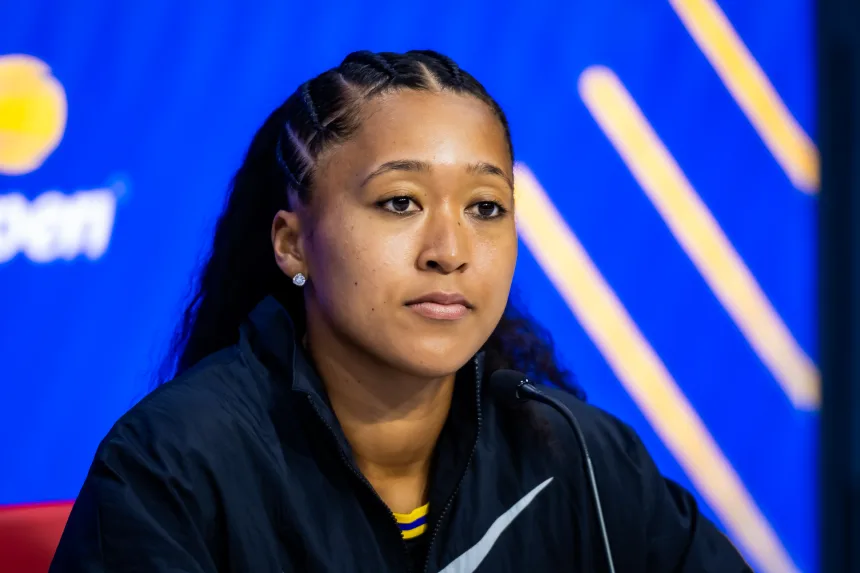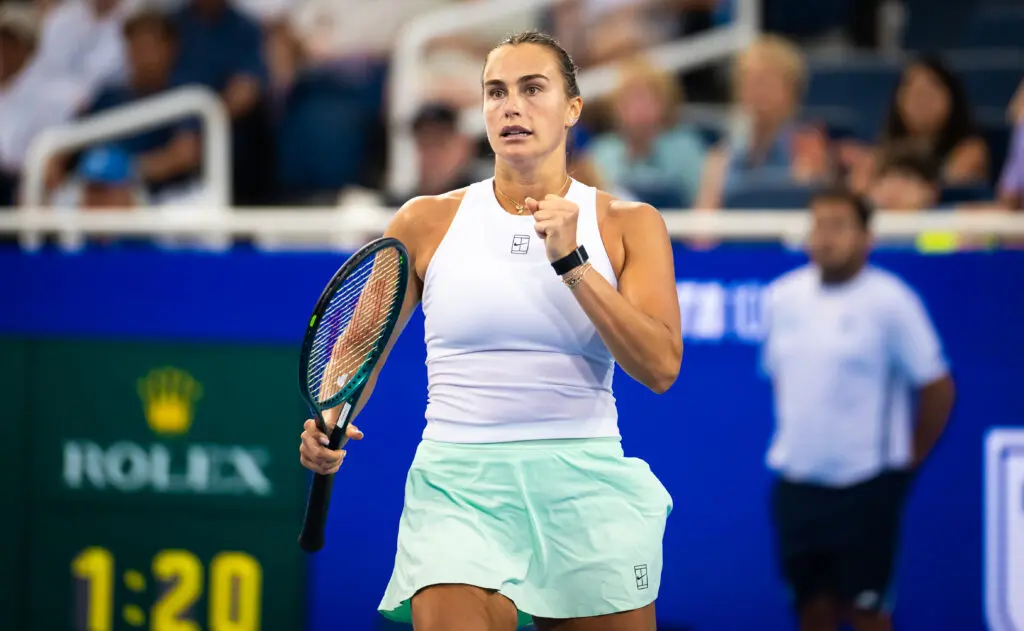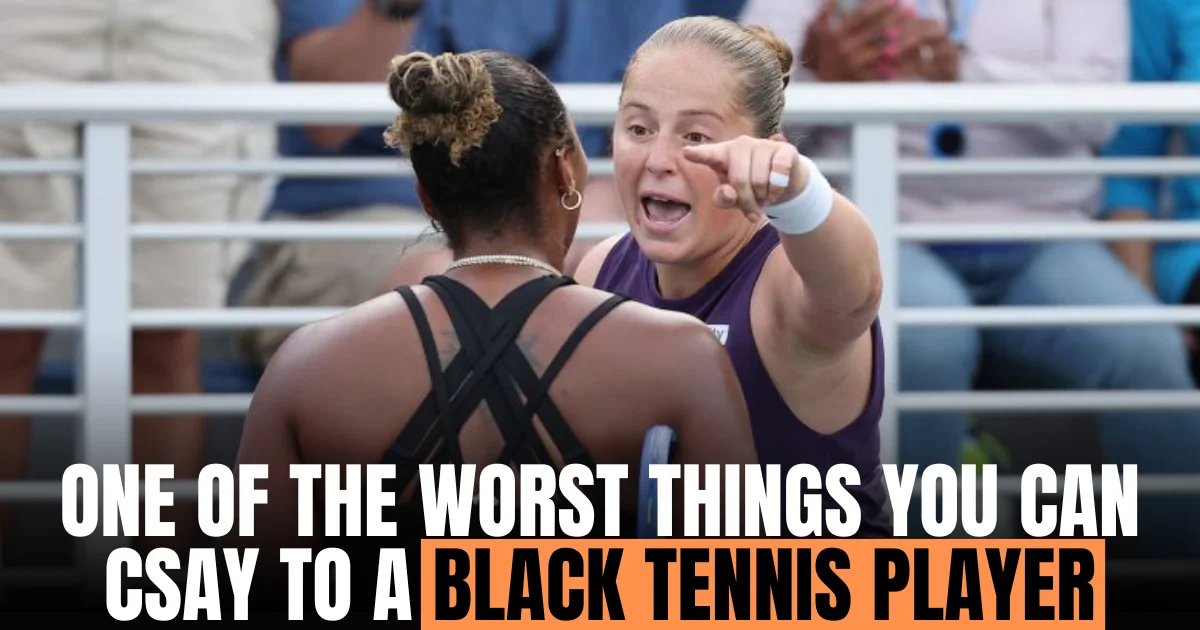Naomi Osaka reacts to Jelena Ostapenko’s controversial comments to Taylor Townsend after their US Open clash, calling them “one of the worst things you can say to a Black tennis player.”
Table of Contents
Introduction
The US Open 2025 has been packed with thrilling matches, but one post-match incident has dominated headlines worldwide. After Taylor Townsend’s emphatic 7-5, 6-1 victory over Jelena Ostapenko, the two players exchanged heated words at the net, sparking a global conversation about race, respect, and sportsmanship in professional tennis.
In a press conference following her own second-round win, Naomi Osaka weighed in on the controversy, calling Ostapenko’s comments toward Townsend “one of the worst things you can say to a Black tennis player in a majority White sport.” Her response quickly went viral, fueling debates among fans and analysts alike.
What Happened Between Jelena Ostapenko and Taylor Townsend
During their second-round clash at the US Open, Townsend defeated Ostapenko in straight sets. However, things escalated after the match when Ostapenko confronted Townsend courtside, accusing her of having “no class” and “no education.”
The exchange shocked many viewers and immediately caught the attention of the media. Clips of the incident flooded social media, with fans debating where the line should be drawn between sportsmanship and personal attacks.
According to Ostapenko, her frustration stemmed from a specific point during the match when Townsend benefited from a net cord but didn’t apologize — a gesture widely considered polite in tennis.
Naomi Osaka’s Reaction: “One of the Worst Things You Can Say”

Speaking to reporters after defeating Hailey Baptiste 6-3, 6-1, Osaka didn’t hold back when asked about Ostapenko’s remarks.
“I think obviously it’s one of the worst things you can say to a Black tennis player in a majority White sport,” Osaka said.
“I know Taylor and I know how hard she’s worked. She’s smart and talented, so she’s the furthest thing from uneducated.”
Osaka’s response highlights the racial undertones of Ostapenko’s choice of words. As one of the most vocal advocates for racial equality in sports, Osaka’s statements have reignited broader conversations about diversity and inclusion in tennis.
Ostapenko’s Side of the Story
In her defense, Ostapenko later clarified on social media that her comments were fueled by frustration over Townsend’s decision not to say “sorry” after the net-cord point.
“It’s a matter of sportsmanship,” Ostapenko explained.
“In tennis, if you get help from the net, you say sorry. She didn’t, and I felt disrespected.”
However, critics argue that Ostapenko’s choice of words overshadowed her reasoning, turning a sportsmanship issue into a controversy about race and respect.
Aryna Sabalenka Weighs In

World No. 1 Aryna Sabalenka also spoke about the incident, showing empathy toward Ostapenko while acknowledging her emotional struggles:
“She’s nice, but sometimes she can lose control,” Sabalenka said.
“I tried to calm her down and be there for her because I think she has some personal things to face.”
Sabalenka’s comments suggest that Ostapenko’s emotional reactions are not new and that managing high-pressure situations remains a challenge for the Latvian star.
The Bigger Picture: Race, Sportsmanship, and Tennis Culture
This incident goes beyond a simple on-court disagreement. In a sport historically dominated by White athletes, racial undertones often surface in subtle — and sometimes blatant — ways.
For Osaka, Townsend, and other Black players, being called “uneducated” carries a deeper cultural weight, especially in an environment where players often face scrutiny not just for their performance but also for their background, identity, and appearance.
Tennis has long struggled with diversity, but this controversy highlights the urgent need for awareness, sensitivity, and inclusivity within the sport.
What’s Next for Taylor Townsend
Despite the drama, Taylor Townsend is moving forward in the tournament with confidence. Her straight-sets victory demonstrated her growing form and mental strength.
In a brief statement, Townsend thanked her supporters and said she was focused on her next match rather than the post-match argument. Fans have rallied behind her, praising her composure and professionalism.
Social Media Reaction

Within minutes, the incident became a trending topic across X (formerly Twitter), Instagram, and TikTok.
- Hashtags like #NaomiOsaka, #TaylorTownsend, and #USOpenDrama dominated timelines.
- Thousands of fans defended Townsend, while others debated whether Ostapenko’s remarks were intentional or just heat-of-the-moment frustration.
This widespread engagement has only fueled global attention on the incident, making it one of the most talked-about stories of the US Open 2025.
FAQs
1. What did Jelena Ostapenko say to Taylor Townsend?
Ostapenko accused Townsend of having “no class” and “no education” after losing their US Open match.
2. Why is Naomi Osaka’s reaction making headlines?
Osaka called Ostapenko’s remarks “one of the worst things you can say to a Black tennis player,” highlighting the racial implications.
3. What caused the argument in the first place?
The dispute began after Townsend benefited from a net cord during a point but did not apologize — a common gesture of sportsmanship in tennis.
4. Did Ostapenko apologize for her comments?
As of now, Ostapenko has not issued a public apology but defended her frustration as being about sportsmanship, not race.
5. How is Taylor Townsend responding?
Townsend has stayed focused on her matches and has not publicly engaged in further conflict.

